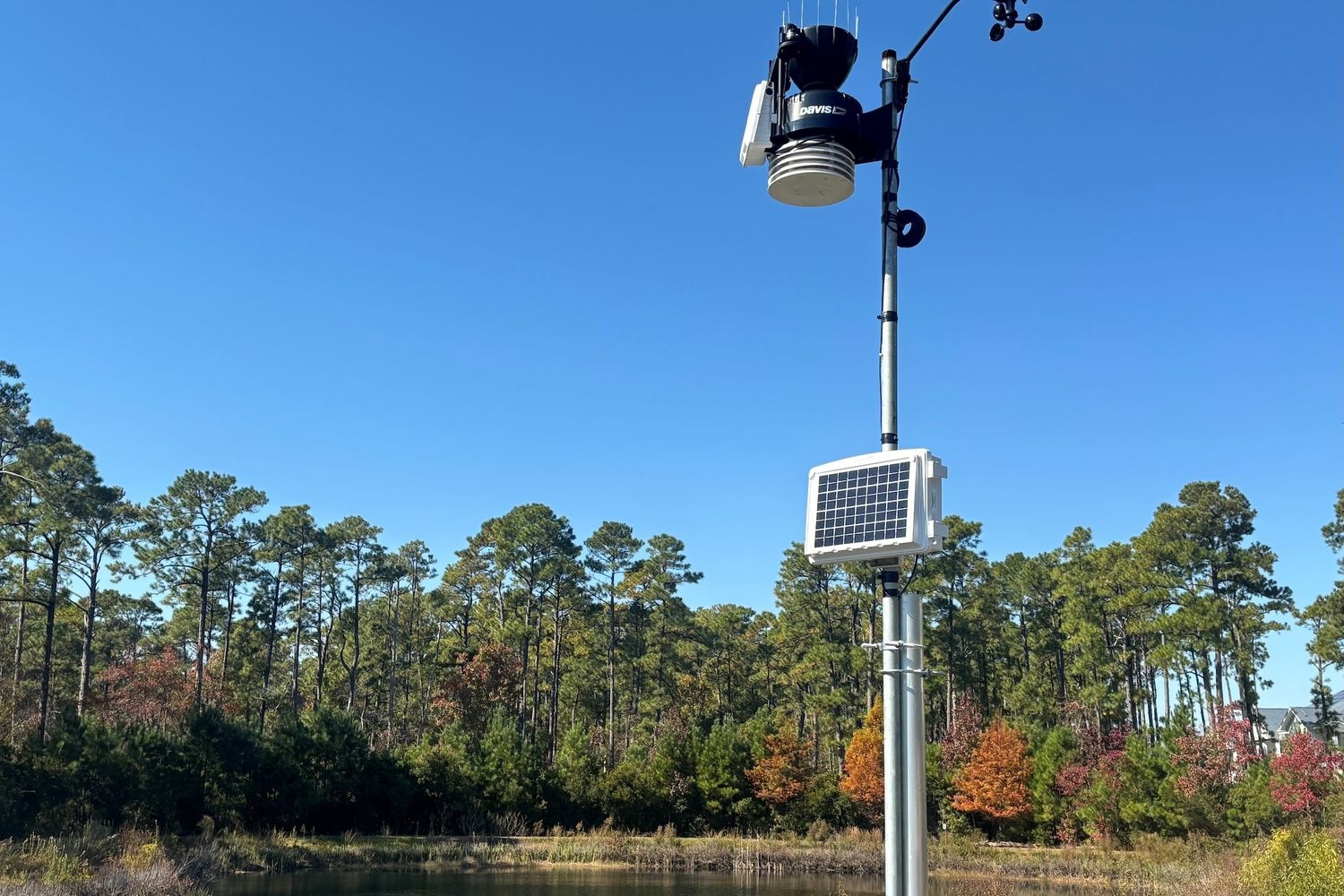Building Real Time Flood and Weather Data Streams for NC Communities

Courtesy: ME Frizzell/UNCW
UNCW researchers, in partnership with the Office of Sustainability, the Office of Facilities and the University of Hull (UK), have installed a living laboratory to monitor water levels and weather data in real-time on the UNCW and the Center for Marine Science (CMS) campuses.
The project is led by co-PIs Lynn Leonard, associate director for research and innovation at CMS and Phil Bresnahan, associate professor in earth and ocean sciences, with funding support from the UNC System. The project was inspired by collaboration with international partners at the University of Hull, UK to develop a Sustainable Drainage System (SuDS) approach.
The laboratory includes a network of stations equipped with advanced sensors placed near rain gardens, retention ponds and creeks. These stations stream real-time data on environmental conditions from both natural and engineered stormwater systems.
“This living laboratory is an incredible example of sustainability at work,” said Feletia Lee, UNCW's chief sustainability officer. “This project incorporates education and research with real-time data and functionality that our facilities teams are using to monitor pond levels and optimize irrigation systems, ensuring more efficient water use across campus and strengthening our sustainability efforts on campus.”
The new instrumentation collects precipitation, water level, soil moisture and basic water quality and related data that will fill a crucial gap in water monitoring research.
“Data are accessible across campus and well-suited for integration into coursework spanning the natural sciences, coastal engineering, machine learning as well as data science and more,” Leonard said.
The laboratory supports student learning by fostering essential skills in technology literacy, critical thinking, collaboration and interdisciplinary communication. These competencies are key to success in the 21st-century workforce and reflect priorities outlined in both the UNCW and UNC System strategic plans.
The data will be integrated into the spring semester’s OCN 470: Ocean Observing Systems, providing students with hands-on experience with real-time environmental monitoring.
As the state’s coastal university, coastal risks and resilience, including flooding and water quality have been a research focus at the Center for Marine Science for years.
With strong expertise in marine and coastal research and coastal location, UNCW is ideally positioned to advance research in coastal risk and resilience, and lead education and workforce development initiatives.
This project enhances our growing partnership with the University of Hull, which shares similar flood risks and resilience challenges. Recently, CMS researchers visited Hull for strategic planning which led to a joint project to create a “data twin.”
By deploying parallel monitoring networks in both regions to track flooding and drainage we will share scientific insights and discoveries.
Rapid population growth along with the increase in severe weather events, including life threatening flooding highlights the critical need to increase monitoring and develop tools that can protect health, safety, property and local economies.
This initiative also supports NC DEQ requested Executive Order 80 to provide a science-based comprehensive plan to address the NC’s risk to climate change impacts.
By creating community engagement opportunities, strengthening partnerships and supporting hands-on research, UNCW is creating tools to assist communities across North Carolina. By providing open access to quality data for advancing nowcasting/forecasting tools, the living laboratory has the potential to protect health, safety, property and local economies.
This article has the following tags: CSE - College of Science & Engineering Research & Innovation UNCW News Homepage Center for Marine Science


